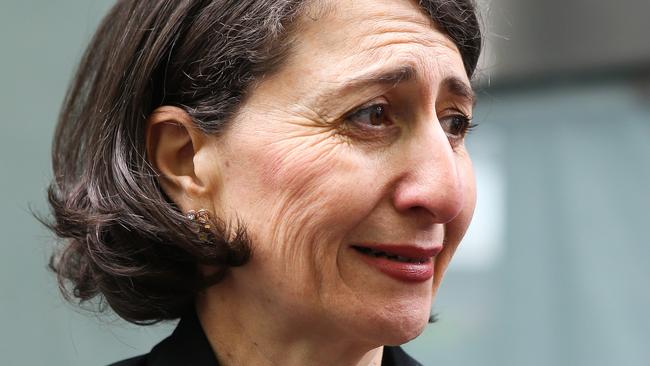Three arguments the anti-ICACers get dead wrong

First, should an outside body make findings on breaches of ministerial codes of conduct? Or should it be left to politicians and bureaucrats to decide?
Second, is the definition of corrupt conduct in the NSW ICAC legislation too broad or too subjective; for example, “breach of public trust”?
Third, is there any justification for describing ICAC, as Scott Morrison did recently, as “a kangaroo court”? (ICAC is not a court at all. It is a standing royal commission.)
As to the first question, the suggestion that the decision relating to a breach of ministerial standards should be left in the hands of politicians or their political servants is alarming. Two recent examples demonstrate why:
• The sports rorts scandal: A confidential report by the Department of Prime Minister and Cabinet secretary dismissed without adequate reasons the careful and detailed investigation of the Australian National Audit Office.
• The carpark rorts scandal: More bizarre was the reaction of ministers to the ANAO report into these grants. Ministers contemptuously dismissed the careful findings that more than $500m in public funds had been expended primarily for political gain.
If correct, as they surely are, these two ANAO findings are glaring examples of serious breaches of ministerial standards. Are we surprised ministers disagree? The most unreliable judges in these cases are politicians and their political servants.
The second question requires a better understanding of the NSW legislation. Admittedly, the definition of corrupt conduct is wide.
However, behaviour that otherwise would fall under the broad heading is excluded from consideration unless it could constitute or involve a “criminal offence, a disciplinary offence, reasonable grounds for dismissal or a substantial breach of a code of conduct”. This limiting provision restricts the investigatory reach of ICAC to serious and/or systemic corrupt behaviour. It eliminates the trivial and insubstantial.
The concept of maladministration has no part to play in the legislation. It is not mentioned in the definition of corrupt conduct.
The concept of breach of public trust in the legislation is neither selective nor subjective. It is a concrete concept, well established in civil and criminal law. It underlay the separate convictions of Eddie Obeid in 2016 and again this year.
The third question involves the usual, tired attack on ICAC as a kangaroo court. As we have pointed out, ICAC is a standing royal commission. It is not part of the criminal justice system at all. We have had royal commissions aplenty in recent years: into trade unions, banks, institutional sexual abuse, aged and disability. Do we call these kangaroo courts? They hold public hearings and make public findings, often critical of individuals and institutions. Ought we not give them due respect for the important work they do?
The “three premiers” argument mentioned by Kelly has been refuted time and time again.
Barry O’Farrell, who has openly praised ICAC, chose to resign not because he was under investigation but because of his political embarrassment as a witness who had forgotten that he had been given a bottle of wine. Gladys Berejiklian was not compelled to resign because she was under investigation. That was her choice and no doubt supported by those close to her in her party. It was a political decision. Nick Greiner’s case, decided in 1992, surely by now is ancient history.
Rather than repeating the inaccurate views of the usual anti-ICACers, the Prime Minister and others might heed NSW Premier Dominic Perrottet’s Sky News interview last week. Asked whether he thought ICAC was a kangaroo court, Perrottet said: “No, I don’t”, and added: “ICAC does a very important job and it gets rid of corruption from public life … We’ve seen over many years in NSW incredibly important work undertaken by the ICAC … And not just in uncovering corruption but preventing it as well and providing that advice to government. So I think they play a very important role here in NSW.”
This suggests Perrottet, as have other premiers before him, values the ICAC as an institution worthy of respect. Morrison’s disrespectful attack puts him on a collision course with NSW and with the broader community on the issue of integrity in public life.
Stephen Charles QC and Anthony Whealy QC are former judges of the Victorian and NSW courts of appeal.



It was disappointing to read Paul Kelly’s harsh commentary on NSW’s Independent Commission Against Corruption last month. Kelly’s writings, often insightful, were, we would suggest, misconceived in several respects and harmful to the quest for integrity in public life. Out of a litany of misconceptions, there are three serious issues we wish to address.